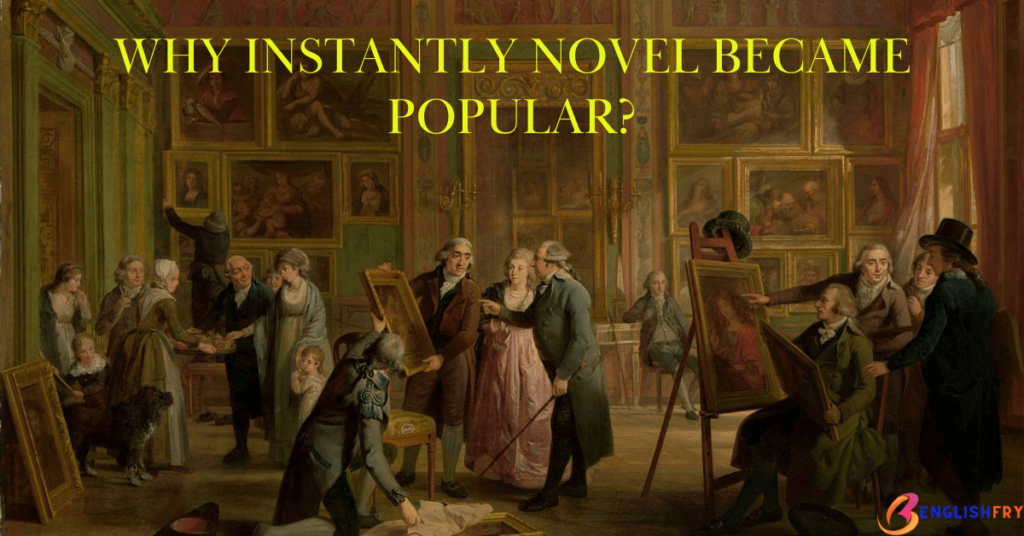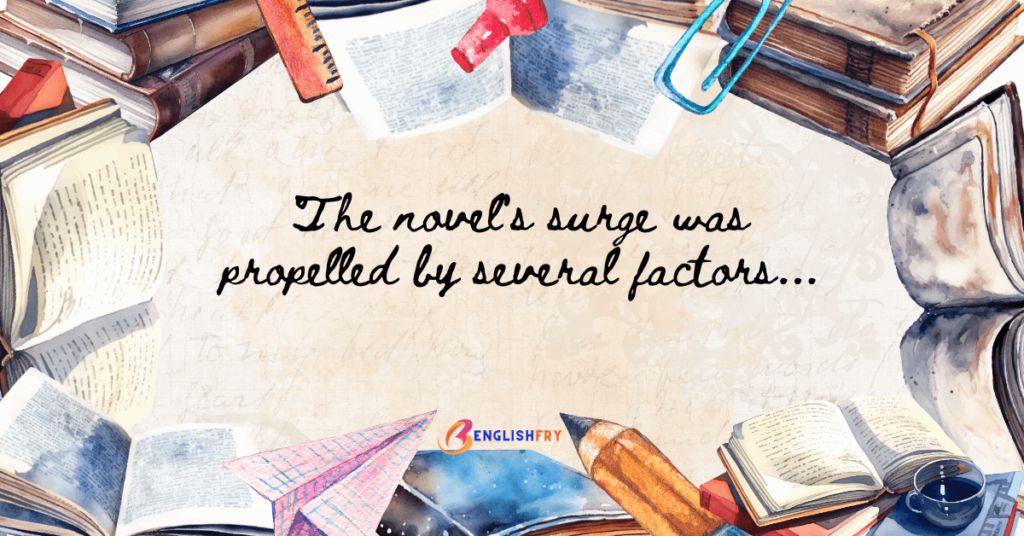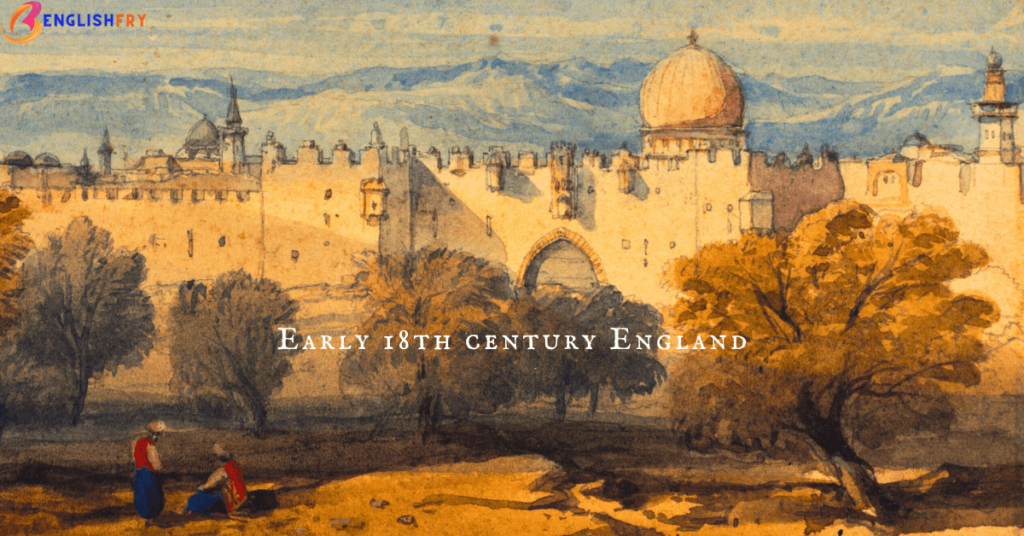“The novel stands as one of the most cherished literary forms in the world today. But have you ever pondered its origin story? What forces propelled the novel to its current status as a literary powerhouse? In this piece, we’ll delve into the genesis of the rise of the novel, tracing its evolution from modest beginnings to its present stature as a literary titan. The ascent of the novel as a dominant literary form can be pinpointed to early 18th century England.
Table of Contents
ToggleEarly 18th century England rise of the novel
This era bore witness to significant social and political shifts, and the novel mirrored these changes through its themes and style. The novel’s popularity burgeoned swiftly, and by the 19th century, it had become a vehicle for societal observation and critique. Writers like Charles Dickens and Jane Austen harnessed the novel’s potential to explore the injustices and disparities of their times, spotlighting issues such as poverty, class conflict, and gender inequality.
The roots of the novel can be traced back to early 18th century England when a novel, recounting the tale of a shipwrecked sailor’s struggle for survival on a deserted island, emerged and instantaneously captivated readers. “Robinson Crusoe” paved the way for a plethora of similar novels, including Samuel Richardson’s “Pamela” and Henry Fielding’s “Tom Jones.” These novels were often serialized in newspapers and magazines, ensuring accessibility to a broader readership.
The rise of the novel was closely intertwined with the socio-political transformations of the time. The 18th century witnessed the ascent of the middle class, affording them more leisure time and disposable income for reading. The novel was frequently tailored to this audience, crafting narratives that resonated with their interests and concerns. These narratives spanned love, marriage, social mobility, adventure, and exploration.
In essence, the novel’s emergence in the early 18th century can be perceived as a response to the evolving cultural and social landscape of England. As literacy rates soared and reading became more fashionable, the demand for accessible, entertaining, and pertinent literature surged. The novel answered this call, presenting readers with relatable and engaging stories, thereby solidifying its status as one of the most cherished and enduring literary forms.

Why instantly it became popular?
- Accessibility: Unlike earlier literary forms like poetry and drama, novels were penned in prose, rendering them comprehensible to individuals from all walks of life and educational backgrounds, broadening their accessibility.
- Realism: Novels introduced stories and characters more grounded and relatable than the myths and legends of earlier literature, fostering readers’ emotional connection and deeper engagement with the narrative.
- Social Commentary: Many novels were crafted as critiques of society and its injustices, endowing readers with fresh insights into their surroundings and diverse perspectives.
- Entertainment: Novels were frequently serialized in newspapers and magazines, ensuring easy access for readers seeking entertainment, thereby cultivating a mass market for novels.
- Exploration of Human Emotions: Novels frequently delved into the intricacies of human emotions like love, jealousy, and betrayal, encouraging readers to forge a profound connection with characters and better comprehend their own emotions.
- Character Development: Novels permitted authors to meticulously shape characters’ trajectories throughout the narrative, imbuing them with complexity and nuance, enabling readers to follow their growth and evolution.
- Psychological Realism: Numerous novels delved into characters’ innermost thoughts and emotions, establishing a sense of psychological realism hitherto unseen in literature, facilitating a deeper comprehension of characters.
- Availability of Print: The advent of the printing press enabled large-scale book production, increasing the availability and affordability of novels, which in turn created a mass market.
- Historical Context: The novel’s rise coincided with a period of profound social and political transformation, allowing novels to reflect this context and enable readers to gain deeper insights into their world.
- Education: Rising literacy rates meant that novels became a means for people to educate themselves, fostering knowledge about the world and, at times, serving as tools for social and political reform, contributing to an informed and engaged citizenry.

The novel’s surge was propelled by several factors, including the growing literacy among the general populace, increased leisure time among the middle class, and effective marketing strategies tailored to this demographic. As the novel gained traction, it also underwent transformation. In the 19th century, it evolved into a potent instrument for social critique and commentary.
The 19th century witnessed a profound transformation of the novel, as it evolved into a formidable medium for social commentary and critique. As society grappled with seismic changes such as industrialization and urbanization, the novel adeptly mirrored and dissected these shifts through its narratives and characters.
Authors like Charles Dickens and Jane Austen harnessed their novels to spotlight the social injustices and inequities of their era. Dickens, for instance, exposed the harrowing conditions and exploitation faced by children in workhouses in “Oliver Twist,” while Austen critiqued the inflexible social hierarchies and limited opportunities for women in Regency England through “Pride and Prejudice.”
These novels offered readers an in-depth understanding of the societal and political issues of their time, spurring them to advocate for change. Notably, the novel played a pivotal role in propelling social reforms, including the abolition of slavery and the enhancement of labor conditions.
In tandem with its social commentary, the novel plumbed the depths of human experience, unraveling the emotional and psychological landscapes of its characters. Writers such as Emily Bronte and Charlotte Bronte probed the inner worlds of their characters, delving into the intricacies of human emotion and desire.
Ultimately, the 19th century witnessed the novel’s emergence as a potent instrument for societal scrutiny and commentary, steering the course of history and catalyzing change. Its capacity to explore the intricacies of human experience, and to reflect and critique society, endowed it with enduring significance, perpetually captivating readers.
The 20th century ushered in further metamorphosis of the novel as writers ventured into innovative forms and styles. Modernist authors like James Joyce and Virginia Woolf pushed the limits of conventional storytelling, employing techniques such as stream-of-consciousness narration and fragmented narratives to plumb the depths of human experience. In the latter half of the century, postmodern writers like Salman Rushdie and Toni Morrison sustained this tradition, leveraging the novel to explore themes of identity, race, and culture.
Today, the novel remains a vibrant and dynamic literary form. Despite contending with new media forms such as television and the internet, the novel continues to enrapture readers across the globe. It endures as a potent means of navigating the complexities of the human experience and providing insights into the workings of society, politics, and culture.
In summation, the ascent of the novel stands as a testament to literature’s capacity to reflect and mold the world around us. As a literary genre that emerged in the early 18th century, the novel adeptly captured the social and political changes of its era, projecting them onto its stories and characters. From the struggles of everyday life to the broader currents of history, the novel furnished readers with deeper comprehension of their environment.
Simultaneously, the novel wielded the power to shape the world. Through its critique of society and portrayal of characters who challenged the status quo, the novel galvanized readers to perceive the world through a different lens and work toward social and political transformation. This was especially prominent in the 19th century, with novels like “Uncle Tom’s Cabin” by Harriet Beecher Stowe, which raised awareness of social injustices and contributed to the push for reforms.
The novel’s rise also coincided with a period of significant technological advancements, primarily the advent of the printing press, which made books more widely accessible than ever before. This democratization of literature played a pivotal role in creating a mass market for novels and spreading their ideas and themes to a broader audience, amplifying their impact on society.
In this light, the ascent of the novel serves as a testament to the transformative power of literature in reflecting and shaping the world. Through its ability to capture the nuances of human experience, critique society, and inspire readers to view the world through different lenses, the novel has left an indelible mark on how we perceive ourselves and the world around us.
Today, as we navigate new challenges and opportunities, the novel remains a vital literary form, continuing to mirror and influence the world we inhabit. It endures as a powerful instrument for exploring the multifaceted aspects of human existence, offering profound insights into the dynamics of society, politics, and culture. The novel’s enduring relevance underscores its enduring importance in the realm of literature and its enduring capacity to illuminate our understanding of the ever-evolving world.

Frequently Asked Questions on Rise of the Novel (FAQ)
1. What factors contributed to the rise of the novel as a dominant literary form in the 18th century?
- The rise of the novel in the 18th century can be attributed to factors like increasing literacy rates, accessibility, social commentary, and the emergence of the middle class with more leisure time and disposable income.
2. How did the novel evolve over time?
- The novel evolved from its early forms, like “Robinson Crusoe,” into a vehicle for social critique and commentary in the 19th century, with authors such as Charles Dickens and Jane Austen using it to address societal injustices.
3. What impact did the novel have on social and political change in the 19th century?
- Novels like “Oliver Twist” and “Uncle Tom’s Cabin” played a significant role in raising awareness of social injustices and contributed to the push for reforms, including the abolition of slavery and improved labor conditions.
4. How did the novel adapt in the 20th century?
- In the 20th century, the novel continued to evolve, with modernist and postmodernist authors experimenting with new forms and styles, such as stream-of-consciousness narration and exploring themes of identity and culture.
5. What makes the novel enduring and relevant today?
- The novel remains relevant due to its ability to explore the complexities of human experience, offer insights into society, politics, and culture, and provide readers with a profound understanding of the world.
6. How did the printing press contribute to the popularity of novels in the 18th century?
- The printing press made it possible to produce books on a large scale, making novels more widely available and affordable to readers, thus helping to create a mass market for novels.
7. What were some key themes explored in 19th-century novels?
- 19th-century novels often explored themes like social injustices, class conflict, gender inequality, and the emotional and psychological lives of characters.
8. Who were some notable authors of the 19th-century novels?
- Prominent authors of 19th-century novels include Charles Dickens, Jane Austen, Emily Bronte, and Charlotte Bronte, among others.
9. How did the novel serve as a tool for social and political reform?
- Novels shed light on societal issues and injustices, prompting readers to advocate for change and contributing to important social and political reforms.
10. What role does the novel play in shaping our understanding of the world today?
- The novel continues to be a powerful means of reflecting and influencing the world, offering deep insights into human experiences, society, politics, and culture, thereby enriching our understanding of the ever-changing world.
Founder of Englishfry.com, a captivating and knowledge-driven blog & Founder of Android app/website Studyfunnel.com, an online Mock Test Series Portal. With a wealth of experience spanning over 16+ years, he has excelled as an Ex-professor, Teacher, Author of self help book “Island of Illusion”, Website Developer, Graphic Designer,Blogger,Poet, and Creative academic content writer. His tryst in Literature helped him realize his love for writing and telling stories. A tech-savvy language nerd by day and, a passionate writer by night, he now translates his experiences into tales of wisdom served with a side of humor.His widely recognized profound insights ,captivating writing style makes him contribute to prestigious publications and a sought-after authority in the field.








